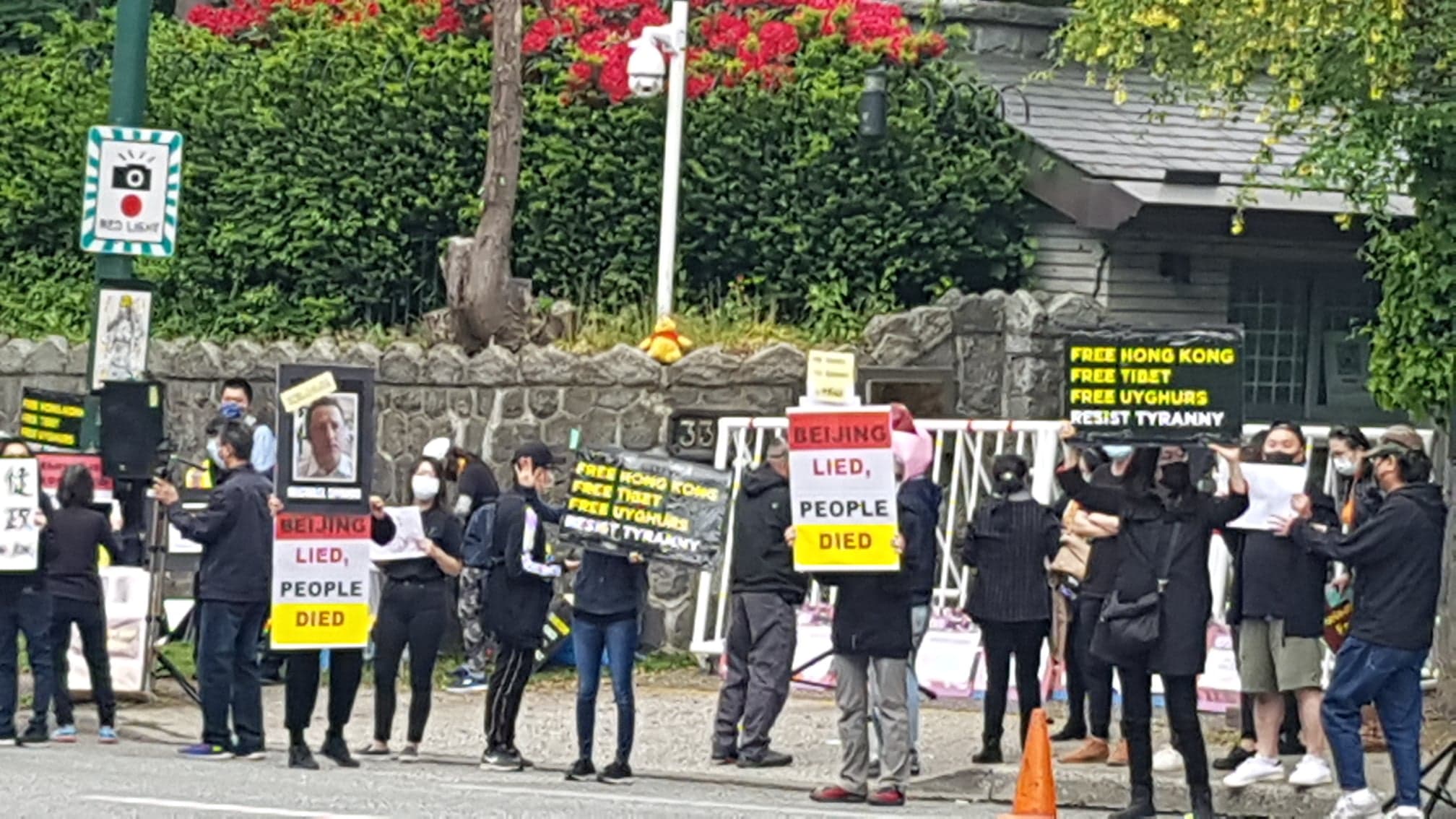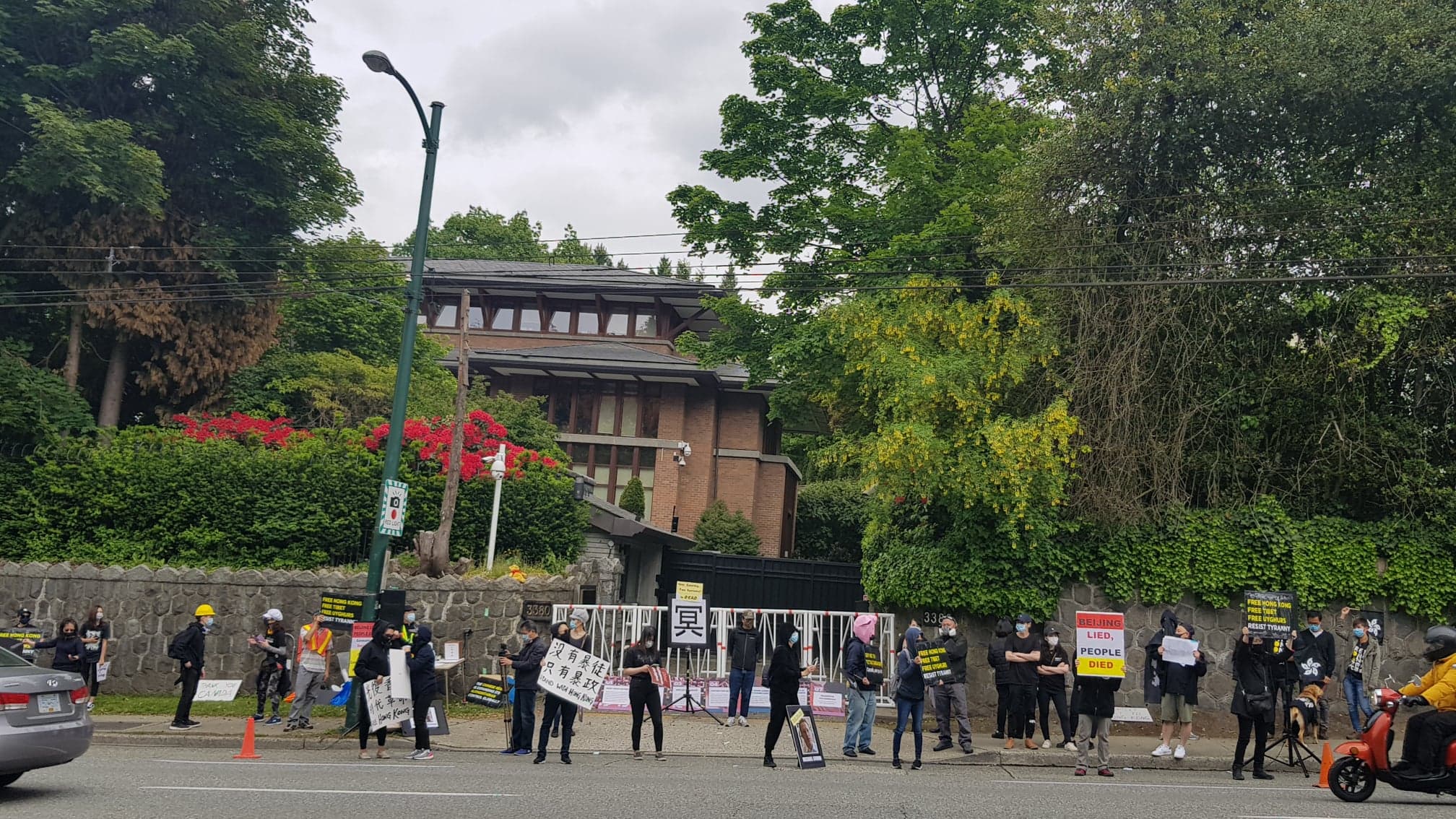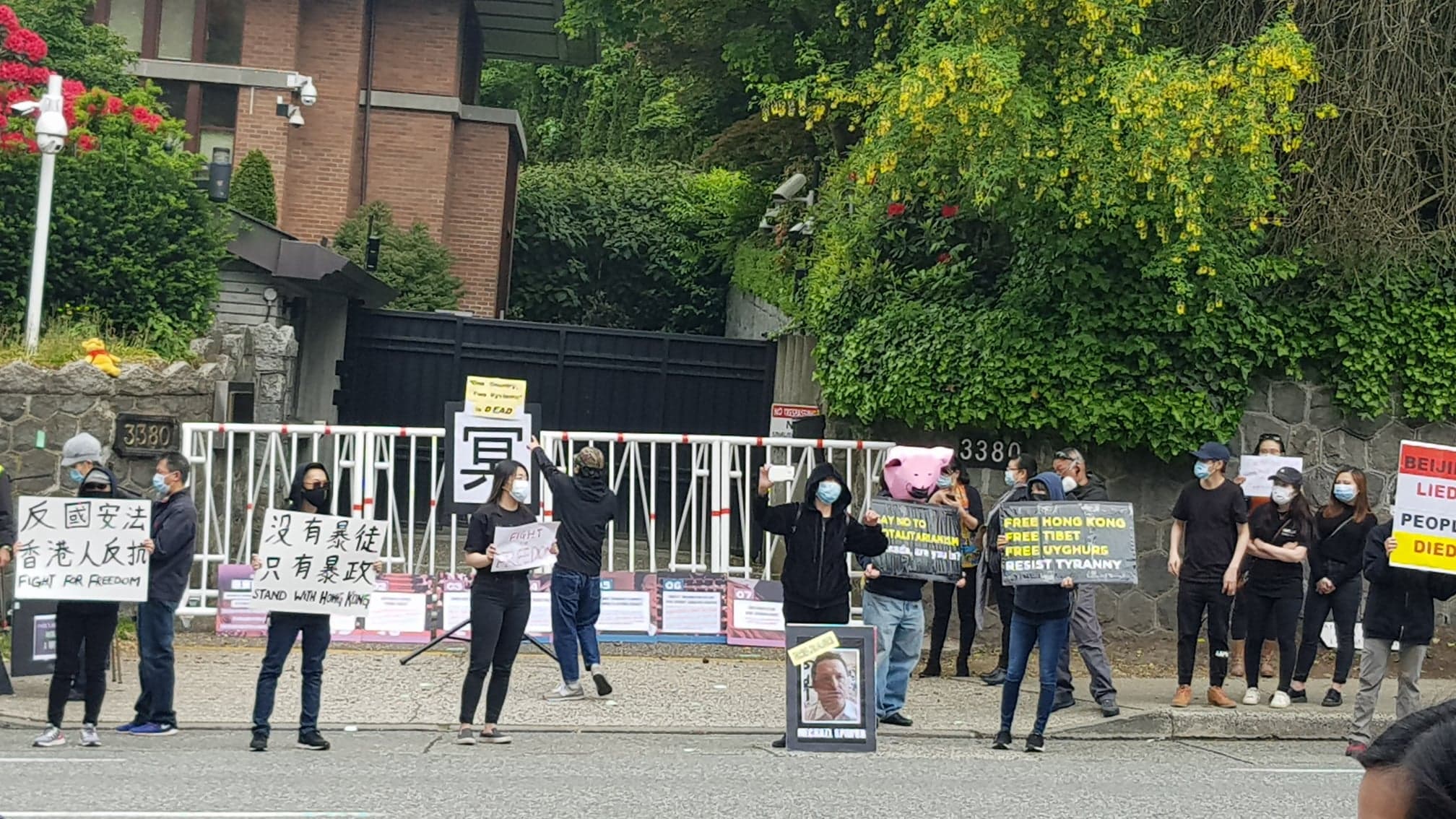
Protesters gathered outside the Chinese Consulate in Vancouver on Sunday to object China’s proposal to impose the national security bill that will crack down pro-democracy and independence movement on the semi-autonomous Hong Kong.
Attended by around 200 people, the protest was held in support of Hong Kong’s democracy and the special administrative region’s fight against China’s national security legislation which is set to be approved in China’s parliament this week—without consulting the Hong Kong legislature.
Mabel Tung, the organizer of the protest, told Vancouver Sun that the legislature would “take away a lot of freedom of expression and freedom of assembly.”

Tung says that the law, if approved, would allow people from Hong Kong to be deported in mainland China if they were accused of a crime.
In Winnipeg, a group of protesters also gathered in front of the Canadian Museum for Human Rights in support of Hong Kong’s independence movement.
“My roots are still in Hong Kong, every time I saw the Hong Kong news, I feel the same with the Hong Kong people,” said Brian Cheung, one of the organizers of the campaign, in an interview with Global News.
“You can see in Hong Kong there’s one million, two million people on the street protesting and asking for something that’s a basic right,” he added.

Around 25 more people joined the rally; most of them came from Hong Kong originally.
Canada, Australia, and the United Kingdom said that they are “deeply concerned” in a joint statement regarding the proposal of the national security legislation that aims to ban dissent and seditious acts against the central government of China in the city of Hong Kong.
“The legally binding Joint Declaration, signed by China and the United Kingdom, sets out that Hong Kong will have a high degree of autonomy. It also provides that rights and freedoms, including those of the person, of the press, of assembly, of association and others, will be ensured by law in Hong Kong, and that the provisions of the two UN covenants on human rights, the International Covenant on Civil and Political Rights and the International Covenant on Economic, Social and Cultural Rights, shall remain in force,” read the statement.
“Making such a law on Hong Kong’s behalf without the direct participation of its people, legislature or judiciary would clearly undermine the ‘one country, two systems’ principle under which Hong Kong is guaranteed a high degree of autonomy,” it concluded.
Prime Minister Justin Trudeau also expressed his wish for the “one country, two systems approach” to continue for Hong Kong.
“We are concerned with the situation in Hong Kong,” the Canadian Prime Minister said. “We have long called for de-escalation of tensions and genuine dialogue with Hong Kong.”
But Beijing warned Canada and other “meddling” countries regarding the proposed security laws and described it as “double standard and gangster logic” according to the spokesperson of the Office of the Commissioner of the Ministry of Foreign Affairs of China.
“No matter how venomously you smear, provoke, coerce or blackmail us, the Chinese people will remain rock-firm in safeguarding national sovereignty and security,” their statement said.
“Doomed is your plot to undermine China’s sovereignty and security by exploiting the troublemakers in Hong Kong as pawns and the city as a frontier for secession, subversion, infiltration and sabotage activities against China,” it added.
In Hong Kong, thousands of people took to the streets to march against China’s proposal that violates the “one country, two policies” framework that separates Hong Kong’s policies with mainland China. The protests were met with violence as the police fired tear gas at the crowd on Sunday as they gathered in Causeway Bay and Wan Chai districts, chanting anti-government slogans including “Stand with Hong Kong” and “Save Hong Kong.”